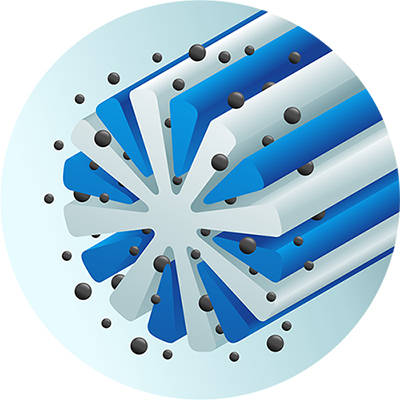- CAS: 135861-56-2
- Molecular Weight: 414.49
- Molecular Formula: C24H30O6
- CAS: 85209-91-2
- Molecular Weight: 508.61
- Molecular Formula: C29H42NaO4P
Introduction
Polymer nucleating agent is a modifier that promotes polymer crystallization and improves its grain structure, which is suitable for incompletely crystalline plastics such as polyethylene (PE) and polypropylene (PP).[1] Polymer nucleating agents can change the crystallization behavior of polymers, accelerate the crystallization rate, increase the crystallization density, and promote the miniaturization of grain size, thereby shortening the molding cycle. In addition, nucleating agents can also improve properties such as transparency, surface gloss, and tensile strength of finished products.[2]

Nucleating Agent Classification
Nucleating agents are generally divided into α-nucleating agents and β-nucleating agents according to the crystal form.
- α-Crystal Nucleating Agents
The α-crystal nucleating agent mainly improves the transparency, surface gloss, rigidity and thermal deformation temperature of the product, which is also called transparent agent, anti-reflection agent and hardener. Currently, the most nucleating agents on the market belong to this category, mainly including disorbitol (DBS) and its derivatives, aromatic phosphates, substituted benzoates, etc. Among them, the application of DBS nucleating transparent agent is the most common.
- β-Crystal Nucleating Agents
There are two main types of β-nucleating agents, one is a small number of crude ring compounds with quasi-planar structures. The other is composed of some dicarboxylic acids and oxides, hydroxides and salts of Group IIA metals of the periodic table. The β-nucleating agent can modify polypropylene by changing the ratio of different crystal forms in the polymer.[3]
Mechanism of Action
Thierry et al. proposed the anti-reflection network nucleation mechanism, which is currently the generally accepted mechanism for polymer nucleating agents. The nucleating agent of the polymer has self-polymerization and can be dissolved in molten polyethylene to form a uniform solution. When the polymer is cooled, the transparent agent first crystallizes to form a fiber network, which is not only uniformly dispersed, but also has a fiber diameter of only 100Å, which is smaller than the wavelength of visible light. The subsequent formation of crystalline nucleation centers on the surface of the network facilitates the polymerization of the polymer.
Application
Polymer nucleating agents are widely used in plastic manufacturing. In order to pursue quality and beauty of plastic products, many transparent plastic products need to add nucleating agent, which can increase the transparency of plastic products and make the products more beautiful. In addition, nucleating agents can also enhance the rigidity and toughness of plastic products, and can recrystallize polymers during melting, increasing the overall crystallization rate and productivity of polymers. At present, modified plastic products synthesized using nucleating agents have been widely used in industries such as food, materials, medical devices, pharmaceutical packaging, auto parts, household appliances, and building materials.
References
- Gao, C. et al. Progress in researches and applications of nucleating agents for polyethylene terephthalate. Science & Technology Review. 2010, 28(16): 106-112.
- Shi, J. et al. Progress in nucleating agents for polyamide. Science & Technology Review. 2011, 29(6): 72-79.
- An, Y. et al. Effect of different nucleating agent on crystallization kinetics and morphology of polypropylene. E-Polymers. 2019, 19(1): 32-39.


![1,3:2,4-Bis-O-[(3,4-dimethylphenyl)methylene]-D-glucitol](https://resource.bocsci.com/structure/135861-56-2.gif)













